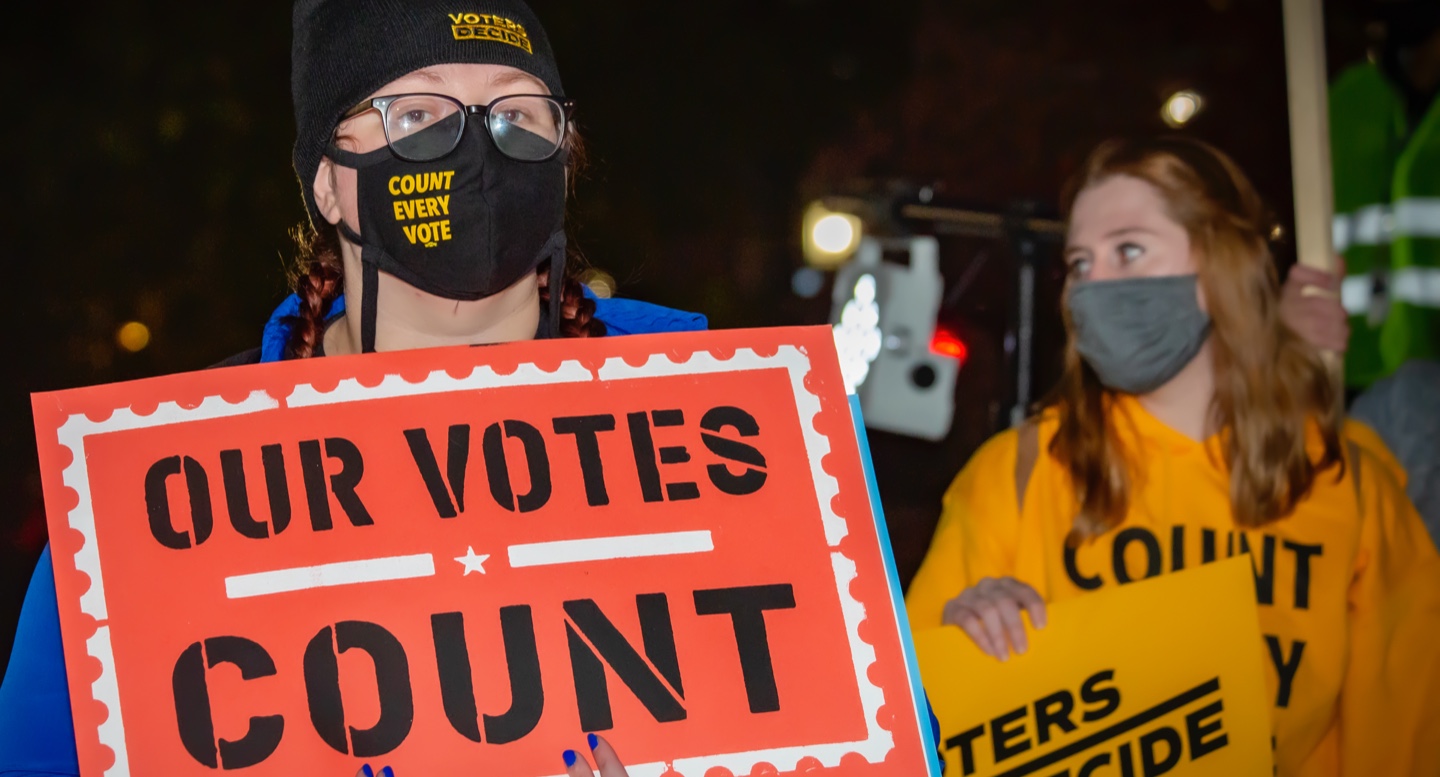Democracy & Social Justice
Protecting Voting Rights
Every Pennsylvanian has the right to make their voice heard, we must continue to protect our sacred right to vote.
More recently, in Pennsylvania, we have seen attacks against our democracy and our right to vote by proposed constitutional amendments and legislative bills to restrict access to the ballot and the sham election audit.
The New Pennsylvania Project believes we must defend our voting rights from those who wish to erode the public’s trust in our free and fair elections.Let’s work to not only expand the electorate but also make it easier for folks to gain access to the ballot, eliminate voter suppression, and combat election and voter disinformation.
Learn more about protecting voting rights from our organizational partner Common Cause PA
Policing Reform
Policing in America, at its core, is deeply rooted in structural and systemic racism.
To tackle the foundation of structural racism in policing, we can start by providing better training and monitoring police forces to address the economic inequality that creates high rates of crime, especially in BIPOC communities.
Learn more about criminal justice reconstruction at a local level from our organizational partner We The People-PA and Alliance for Police Accountability.
Redistricting
Redistricting is the process of redrawing voting district lines to reflect population changes every ten years, after each U.S. census. In Pennsylvania, new lines are drawn for state legislative maps as well as U.S. Congressional districts.
Districts should ideally be redrawn in a “nonpartisan” way that don’t favor one party or another. Currently, Pennsylvania law puts state legislators in charge of redrawing Congressional maps, which can lead to blatant power grabs and conflict of interests. The result is gerrymandering: the practice of manipulating voting districts to benefit political Parties, not people. Gerrymandered districts give voters less voice and less choice, and therefore don’t see themselves represented in Harrisburg or Washington, D.C.
Learn more about redistricting from our friends at Fair Districts PA.
